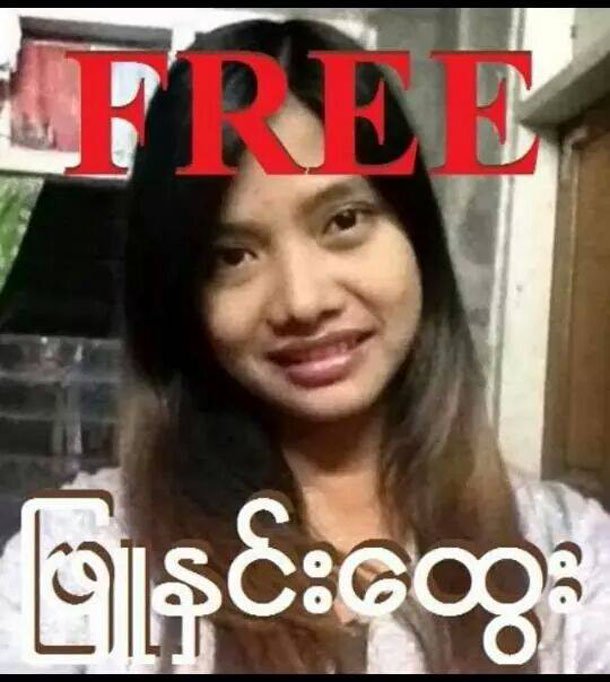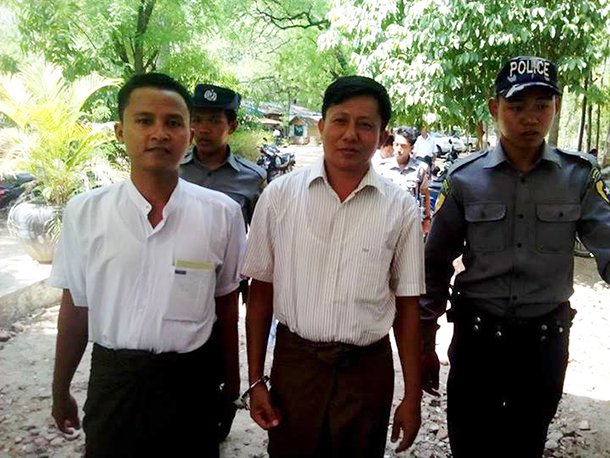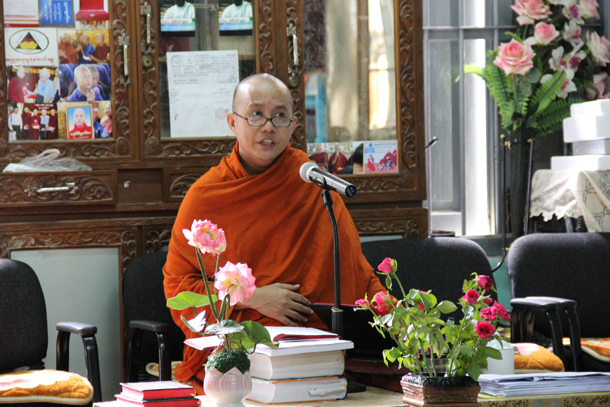Posts Tagged ‘Universal Declaration of Human Rights’ (22 found)
Pro-Business or Pro-Poor?
 Making Sense of recently unveiled Draft National Land Use Policy
Making Sense of recently unveiled Draft National Land Use Policy
October 18, 2014 saw the official unveiling by the government of the Republic of the Union of Myanmar of its much-awaited draft national land use policy. Once it is finalized, the new policy will guide the establishment of a new overarching framework for the governance of tenure of land and related natural resources like forests for years to come. As such, it is of vital importance.
This preliminary assessment aims to shed light on the key aspects of the draft policy and its potential implications for the country’s majority rural working poor, especially its ethnic minority peoples, although they are not the only ones whose future prospects hinge on how this policy making process will unfold. […]
• • •Document – Myanmar: Media Workers Jailed for Two Years
Five media workers have been sentenced to two years in prison in Myanmar over the publication of a news story. They are prisoners of conscience, detained solely for peacefully exercising their right to freedom of expression […]
• • •Arrest of Student on Trumped-up Charges is a Damning Indictment of Justice in Burma
 On 13 September 2014, police arrested female human rights defender (HRD) Phyu Hnin Htwe at her house in Patheingyi Township, Mandalay Region, and sent her to Monywa Prison, Sagaing Region, where she is currently being detained. Phyu Hnin Htwe is a second-year Burmese student at Mandalay’s Yadanabon University, and is also an activist and member of the All Burma Federation of Student Unions (ABFSU). She has helped farmers who have been forcibly evicted to make way for the infamous Chinese-backed Letpadaung copper mine in Sagaing Region, going to the Letpadaung area at weekends and supporting displaced farmers.
On 13 September 2014, police arrested female human rights defender (HRD) Phyu Hnin Htwe at her house in Patheingyi Township, Mandalay Region, and sent her to Monywa Prison, Sagaing Region, where she is currently being detained. Phyu Hnin Htwe is a second-year Burmese student at Mandalay’s Yadanabon University, and is also an activist and member of the All Burma Federation of Student Unions (ABFSU). She has helped farmers who have been forcibly evicted to make way for the infamous Chinese-backed Letpadaung copper mine in Sagaing Region, going to the Letpadaung area at weekends and supporting displaced farmers.
Her arrest ostensibly relates to a murky incident that took place on 18 May of this year. Two Chinese workers – employees of Wanbao company, the main company involved in the joint venture – were seized from the Letpadaung area, taken to a monastery in Hsete Village, and held there for about 30 hours. The incident followed efforts by Wanbao employees to restart measuring plots of land for which compensation had not even been provided, in spite of villagers’ protests, thereby provoking their anger.
As a result, Phyu Hnin Htwe and six villagers were charged with kidnapping and abduction under Articles 364 and 368 of the Penal Code, which prescribe sentences of up to ten years’ imprisonment. While the case against five of the villagers was quickly dropped, charges still remain against Phyu Hnin Htwe and local villager Win Kyaw, neither of whom attended court in May […]
• • •Draconian Sentences of Unity Weekly Journalists Must at the Very Least be Drastically Reduced
 On Thursday 28 August, lawyer Robert San Aung submitted to Magwe regional court the final appeal against the harsh verdicts brought against the five Unity Weekly journalists on10 July. They were sentenced to ten years’ imprisonment with hard labor following the publication of a report in January of this year that gave details of an alleged chemical weapons facility in central Burma. They were charged for trespass and for “disclosing state secrets” in violation of the 1923 Official Secrets Act (OSA). Robert San Aung submitted the appeal on the grounds that the four reporters are innocent and should therefore be released from prison, and that the sentence of the journal’s executive be reduced by half. The Magwe regional court is expected to issue a decision within a month.
On Thursday 28 August, lawyer Robert San Aung submitted to Magwe regional court the final appeal against the harsh verdicts brought against the five Unity Weekly journalists on10 July. They were sentenced to ten years’ imprisonment with hard labor following the publication of a report in January of this year that gave details of an alleged chemical weapons facility in central Burma. They were charged for trespass and for “disclosing state secrets” in violation of the 1923 Official Secrets Act (OSA). Robert San Aung submitted the appeal on the grounds that the four reporters are innocent and should therefore be released from prison, and that the sentence of the journal’s executive be reduced by half. The Magwe regional court is expected to issue a decision within a month.
While the offense under Section 3(1)(a) of the OSA is a strict liability offense – meaning that the prosecution only has to prove that the defendants were in the vicinity of the prohibited place for them to be found guilty – in order for the other convictions to stand, the burden is on the prosecution to show that the secrets alleged to have been leaked were intended to or were likely to have breached state security or assisted an enemy. The journalists must be shown to have leaked detailed and useful information, to have done more than just report that the facility was a weapons factory. It is not clear that the prosecution ever satisfied this requirement.
Even so, if the appeal submission fails to convince the court either that the journalists are not guilty of any substantive offenses, or that there are specific and legitimate defenses under the OSA that can be relied upon, then at the very least the appeal should be successful on grounds of mitigation regarding the alleged offenses, meaning that the sentences should at a minimum be drastically reduced […]
• • •Burma: Ongoing Judicial Harassment and Arbitrary Detention of Htin Kyaw, Tin Maung Kyi and Zaw Win
The Observatory for the Protection of Human Rights Defenders, a joint programme of the International Federation for Human Rights (FIDH) and the World Organisation Against Torture (OMCT), has received new information and requests your urgent intervention in the following situation in Burma […]
• • •Myanmar: Take Immediate Steps to Safeguard against Torture
On International Day in Support of Victims of Torture, Amnesty International calls on the Myanmar authorities to take swift and concrete steps to safeguard against torture.
As a first step, Amnesty International calls on the Myanmar government to fulfil – as a matter of priority – its public commitment to ratify the UN Convention against Torture and other Cruel, Inhuman or Degrading Treatment or Punishment (CAT). Ratification would be an important step towards eradicating torture and other ill treatment, and ensuring that victims and their families can access justice and other effective remedies for the harm they have suffered […]
• • •Religious Conversion Law Threatens Religious Freedom in Burma/Myanmar
Over 80 organizations from civil society worldwide today call on the Government of Burma/Myanmar to scrap proposed legislation that would unlawfully restrict the right to freely choose a religion. If adopted, this law would violate fundamental human rights and could lead to further violence against Muslims and other religious minorities in the country […]
• • •Burma: Killing of Mr. San Tun
The Observatory for the Protection of Human Rights Defenders, a joint programme of the International Federation for Human Rights (FIDH) and the World Organisation Against Torture (OMCT), requests your urgent intervention in the following situation in Burma […]
• • •Burma Parliament Must Reject Dangerous Religious Conversion Law
 The introduction of the draft Law on Religious Conversions (the Law) – published in full in Burmese in state media on 27 May 2014, for the consideration of Parliament and the public – has justifiably triggered a torrent of criticism over the past few days, at national, regional and international levels. Human Rights Watch has urged the Burma Parliament to drop the Law, while the Asian Human Rights Commission has called for “the strongest opposition to the Law, both in the public domain and in the legislature.”
The introduction of the draft Law on Religious Conversions (the Law) – published in full in Burmese in state media on 27 May 2014, for the consideration of Parliament and the public – has justifiably triggered a torrent of criticism over the past few days, at national, regional and international levels. Human Rights Watch has urged the Burma Parliament to drop the Law, while the Asian Human Rights Commission has called for “the strongest opposition to the Law, both in the public domain and in the legislature.”
Part of a package of four bills which comprise measures to “protect race and religion,” the Law is the product of a very powerful lobby in contemporary Burma, namely a coalition of Buddhist monks known as the “Organization for the Protection of Race, Religion and Belief” (the OPRRB), which has been petitioning President Thein Sein and the Burma Government to address the simmering issue of race and religion since religious and communal tensions first broke out in Arakan State almost exactly two years ago. One of the leaders of the OPRRB, Tilawka Biwuntha, told Radio Free Asia that his organization were pleased with the introduction of the Law.
• • •Proposed Law Restricting Inter-faith Marriage in Myanmar is Dangerous, Discriminatory and Unnecessary, ASEAN MPs Warn
BANGKOK (25 March) — Parliamentarians from across Southeast Asia have joined growing calls on fellow legislators in Myanmar to vote down a proposed law that would see restrictions placed on inter-faith marriage in the country[…]
• • •








 All posts
All posts